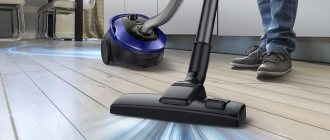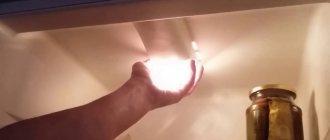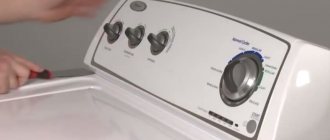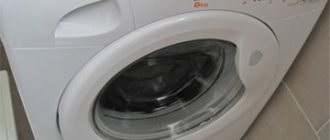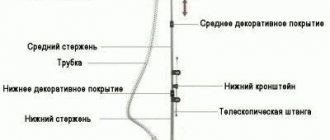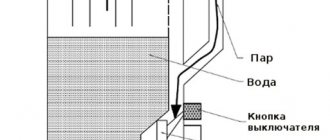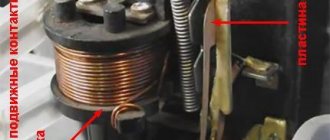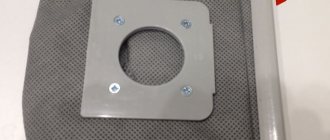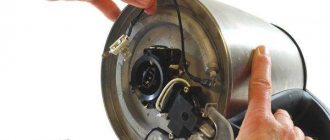Vacuum cleaners are types of household appliances that are used everywhere and very often. As a result, despite the quality and cost, sooner or later almost every owner is faced with various situations of failure of these devices. And one of them is the appearance of extraneous noise - for example, a vacuum cleaner begins to whistle when working. In order to troubleshoot a problem, you must be able to correctly diagnose loud noise. Find out the main types of breakdowns, as well as how to eliminate them.
What to do if the vacuum cleaner makes a loud noise when working
The reason for the loss of suction power and the appearance of extraneous noise may be a clogged pipe or hose. Fixing such a breakdown is quite simple: you need to walk a soft length of wire inside the hose, using which to push out stuck debris and pieces of dust. You should also pay attention to the condition of the brushes. The cause of the breakdown may be a foreign object stuck inside (for example, a match). The process of cleaning brushes is carried out in the same way as pipes with a hose.
A breakdown of one or several parts in the vacuum cleaner mechanism can also lead to the formation of extraneous noise. However, it is quite difficult to determine on your own which component has broken down, and an error can lead to the final failure of the entire device. In this case, it is recommended to contact the service center specialists.
Gone are the days when household appliances made so much noise during operation that they drowned out all other sounds in the room.
On the contrary, the signature feature of elite equipment is the almost complete absence of noise during operation. This also applies to robot vacuum cleaners.
Premium models work unnoticed by others, but if the device suddenly begins to make noise, you should interrupt its operation and try to find out the reason.
Why does the vacuum cleaner whistle when working?
Structurally, robotic vacuum cleaners are reminiscent of large home vacuum cleaners, with one exception - full-size equipment is powered, while robots simply cannot afford to be tied to one point in the room. In both cases, a motor, a vacuum turbine, and a garbage collection bag are used. The robots also have turbo brushes that are responsible for collecting large debris.
The noise of the device appears due to the operation of the main parts of the vacuum cleaner - the motor and turbine, and some noise is also added due to the operation of the turbo brushes.
When choosing vacuum cleaners, many first of all pay attention to the noise factor of the device, since if there is a small child in the family, it will be impossible to carry out loud cleaning. For a visual comparison, it makes sense to consider the functionality of the most popular vacuum cleaner models and noise level:
- The iRobot Roomba 980 performs dry cleaning only, but can work on both regular flooring and carpet. The noise level is 63 dB.
- Philips FC 8820 costs slightly more than the first option, has long side brushes, and the ability to work for a long time without recharging. The device makes noise at 58 dB.
- Karcher RC 3000 is even less noisy - 54 dB. There is not a very capacious dust collector and there are no side brushes, and the electrical power is 600 W.
- The REDMOND RV-R400 vacuum cleaner is suitable exclusively for dry cleaning, takes quite a long time to charge and makes a lot of noise during operation. The noise level is 72 dB.
If you look at the store offers, the category of relatively quiet devices includes vacuum cleaners with a noise level from 35 to 55 dB. There is no direct relationship between noise and the cost of devices, although in practice, expensive models are designed in such a way as to produce as little noise as possible.
A change in noise is a clear indication that something is wrong with the vacuum cleaner. First of all, you should check the dust collector.
Each collection has its own limit on the amount of garbage that can fit there, taking into account its compaction as it accumulates.
But manufacturers do not recommend waiting until the compartment is completely filled, because after 80% of the volume is filled, the suction power will decrease. At the same time, the engine will begin to work with increased power, which directly affects the noise level.
There are several main reasons why the vacuum cleaner becomes loud.
An overfilled dust bin is one of the most common causes, especially for older models. The dust bag can hold a certain amount of debris and must be changed periodically for disposable dust bags or cleaned (for reusable cloth bags). An acceptable filling level is around 80% of the volume, then the filtering capacity of the bag decreases significantly, the suction power drops, and the engine begins to operate at maximum power. Modern models of vacuum cleaners have a special light indicator that signals when the dust container is full.
Vacuum cleaners from modern manufacturers, despite the build quality, are subject to malfunctions during operation. They may have poor suction, emit a burning smell, and make a loud noise. If your household vacuum cleaner suddenly runs very annoyingly loud, this is a serious malfunction. Experts will tell you what to do in this case.
If you do not clean the dust collectors in a timely manner, do not change the filters, or use the device without an aquafilter to collect moisture, you will find a malfunction.
Why did the vacuum cleaner begin to hum loudly when working?
Excessively loud noise can be caused by damage to the motor, impeller, brushes, motor, bearings and commutators. When everything is in order with the filters and bags, but there is a hum, contact the service center. Self-disassembly and repair will lead to a complete stop of the device.
The vacuum cleaner is very loud, even buzzing annoyingly, but you don’t know what to do? You can clean the filters yourself or repair the engine.
Advice! Before making repairs, unplug the equipment.
If your vacuum cleaner makes a whistling noise, it usually means it isn't drawing enough air. This problem is usually caused by a full dust bin or dust bag. Check them first and replace them if necessary. If this is not the reason, then some component of the device may be clogged. Check the exhaust filter, floor nozzle, hose, suction tube and telescopic tube for blockages. Use the elimination method and connect each component of the vacuum cleaner in sequence. Has the sound changed or does the vacuum cleaner continue to whistle? If the vacuum cleaner still whistles and you can't solve the problem yourself, contact Bosch Customer Service on the service phone number. You can call us at any time of the day, 7 days a week. If your vacuum cleaner is whistling, please contact us - we will be happy to help.
Small household appliance service address:
Vacuum cleaners from modern manufacturers, despite the build quality, are subject to malfunctions during operation. They may have poor suction, emit a burning smell, and make a loud noise. If your household vacuum cleaner suddenly runs very annoyingly loud, this is a serious malfunction. Experts will tell you what to do in this case.
If you do not clean the dust collectors in a timely manner, do not change the filters, or use the device without an aquafilter to collect moisture, you will find a malfunction.
Damage occurs as a result of infrequent cleaning of the dust bag or filters. Has your household vacuum cleaner suddenly become very loud? The problem is explained by operation in overload mode, which intensifies the sound. Check the hose to see if large debris, dust bunnies, hair or animal fur may have gotten into it.
Dust collectors have a certain filling limit - up to 80%. Disposable bags should be changed after each cleaning, and fabric bags should be washed thoroughly. To avoid clogging, before work, check the quality of fastening of parts, attachments and dust collectors.
Excessively loud noise can be caused by damage to the motor, impeller, brushes, motor, bearings and commutators. When everything is in order with the filters and bags, but there is a hum, contact the service center. Self-disassembly and repair will lead to a complete stop of the device.
My vacuum cleaner is whistling. What should I do?
If your vacuum cleaner makes a whistling noise, it usually means it isn't drawing enough air.
This problem is usually caused by a full dust bin or dust bag. Check them first and replace them if necessary. If this is not the reason, then some component of the device may be clogged. Check the exhaust filter, floor nozzle, hose, suction tube and telescopic tube for blockages. Use the elimination method and connect each component of the vacuum cleaner in sequence. Has the sound changed or does the vacuum cleaner continue to whistle? If the vacuum cleaner still whistles and you can't solve the problem yourself, contact Bosch Customer Service on the service phone number. You can call us at any time of the day, 7 days a week. If your vacuum cleaner is whistling, please contact us - we will be happy to help. Small household appliance service address:
Greetings to all readers of my diary!
I never thought that I would find fault with technology. We had vacuum cleaners and their quality suited me quite well. But the Tefal Compact power vacuum cleaner has too many shortcomings to turn a blind eye to. In the article I wrote what exactly I didn’t like and why he whistles.
I bought this vacuum cleaner in Voronezh a year and a half ago. At a hardware store, I asked the salesperson to help me. The girl immediately took the bull by the horns and dragged me to the vacuum cleaners. Not paying attention to other brands, she began to praise the Tefal unit. She told me how high quality it was and that everyone was happy with it, and that the filter was superb. Apparently, she needed to sell a Tefal vacuum cleaner.
As a result, I succumbed to the pressure and purchased this very vacuum cleaner. Plus, the seller hyped me up for replacement filters, which cost 1,500 rubles. I courageously refused additional attachments. Now I’ll tell you about my purchase.
First I will describe the advantages.
The appearance of the vacuum cleaner is very pleasant. I liked the color and good design. When I first turned it on, I was struck by the low noise level. The power is impressive. The suction power is such that the brush sticks to the floor and it is difficult to move it. The hose is of very high quality and does not crack when twisted.
Why does the vacuum cleaner work very loudly, hums, makes noise and gets hot?
If after cleaning the filters and completely blowing out the equipment, the hum remains, then there is a possibility of bearing wear. It is a consequence of severe contamination of the filters, access of dust to the motor and sticking to the rotating components. A motor running “dry” causes the vacuum cleaner to hum and whistle.
The user can carry out initial repairs of the motor:
- lubricate the engine with quick-drying lubricant;
- replace bearings;
- check the motor winding - you need to unscrew the cover with a screwdriver, remove the motor and feel the shaft with your fingers. If play is detected, the bearings can be replaced;
- Clean the impeller - unscrew it, wash it in hot water with washing powder, dry it and put it back together.
There can be several reasons for a humming vacuum cleaner. Clogged filters and a filled bag are easy to replace yourself. A faulty motor should be replaced. It is advisable to buy it from official suppliers of parts from the manufacturer. There is no point in repairing an old vacuum cleaner; it is better to buy a new one.
Most often, the device is noisy due to the fact that air does not get to the motor, and therefore it is operated in overload mode. The reason for this phenomenon is trivial: the owners have not cleaned the filters for a long time and do not empty the contents of the bag in which the sucked debris is collected in a timely manner. By removing the clogged filters and emptying the garbage bag, you can easily solve the problem.
If you do not clean the dust collectors in a timely manner, do not change the filters, or use the device without an aquafilter to collect moisture, you will find a malfunction.
Damage occurs as a result of infrequent cleaning of the dust bag or filters. Has your household vacuum cleaner suddenly become very loud? The problem is explained by operation in overload mode, which intensifies the sound. Check the hose to see if large debris, dust bunnies, hair or animal fur may have gotten into it.
Dust collectors have a certain filling limit - up to 80%. Disposable bags should be changed after each cleaning, and fabric bags should be washed thoroughly. To avoid clogging, before work, check the quality of fastening of parts, attachments and dust collectors.
Excessively loud noise can be caused by damage to the motor, impeller, brushes, motor, bearings and commutators. When everything is in order with the filters and bags, but there is a hum, contact the service center. Self-disassembly and repair will lead to a complete stop of the device.
Disassembling the vacuum cleaner
Now we come to the most important and complex breakdown - repairing the engine of a Samsung vacuum cleaner. To verify this, you need to disassemble the vacuum cleaner. Carefully remove all protective parts of the housing and find the engine itself. Now, very carefully, observing all safety precautions, turn on the vacuum cleaner. If the cause of the breakdown lies in the motor, then most likely you will see a bunch of sparks coming from the engine. There may be several reasons for this:
- brush wear;
- interturn short circuit in the winding;
- increased load on the “engine”.
So, in order. To replace graphite brushes, you first need to unscrew and remove the plastic caps and remove the springs. We take out the brushes themselves and insert new ones. Next, we perform all the steps in reverse order - insert the springs, tighten the caps. In order for the brushes to work properly, they need to be ground in. This can be done by stretching fine sandpaper between the brush and the commutator. In this case, the abrasive of the sandpaper should be turned towards the brush and, as it were, scratch it a little.
If all the manipulations performed did not lead to success, and the engine continues to spark when turned on, it means that the engine has shorted out. You won’t be able to independently repair the motor of a Samsung vacuum cleaner (or any other one) at home; you’ll have to take it to a service center.
Another cause of engine failure that you can try to fix at home is replacing the bearing. It is very easy to check whether this is necessary. Take the engine in your hand and gently shake it by the armature: if you notice that the shaft is wobbling from side to side, then replacing the bearing cannot be avoided. To do this, you need to remove the brushes and unscrew the screws holding the housing together. After this, remove the motor covers one by one, using a small hammer and a screwdriver to help you. Perform this procedure very carefully, otherwise you risk damaging the winding. Carefully, helping yourself with tools, remove the bearings (preferably both at once) from the armature shaft. Very carefully, using a hammer and a tube of suitable diameter, push the new bearings into place and assemble the engine.
One little piece of advice: before you decide to disassemble the engine, draw a wiring diagram. Believe me, this will be very useful.
Why does the vacuum cleaner whistle while working?
If you do not clean the dust collectors in a timely manner, do not change the filters, or use the device without an aquafilter to collect moisture, you will find a malfunction.
Damage occurs as a result of infrequent cleaning of the dust bag or filters. Has your household vacuum cleaner suddenly become very loud? The problem is explained by operation in overload mode, which intensifies the sound. Check the hose to see if large debris, dust bunnies, hair or animal fur may have gotten into it.
Important! If measures are not taken in time, suction power is lost and the equipment may simply not turn on.
Dust collectors have a certain filling limit - up to 80%. Disposable bags should be changed after each cleaning, and fabric bags should be washed thoroughly. To avoid clogging, before work, check the quality of fastening of parts, attachments and dust collectors.
Advice! If you forget to pay attention to the amount of garbage in the bag, buy a model with a light indication of fullness.
Excessively loud noise can be caused by damage to the motor, impeller, brushes, motor, bearings and commutators. When everything is in order with the filters and bags, but there is a hum, contact the service center. Self-disassembly and repair will lead to a complete stop of the device.
If there is a manufacturing defect in new equipment, the buzzing appears from the very beginning. According to the Consumer Protection Act, you can replace your vacuum cleaner within 14 days. If the breakdown occurs later, you have the right to free repairs at the manufacturer’s service center.
Vacuum cleaners are types of household appliances that are used everywhere and very often. As a result, despite the quality and cost, sooner or later almost every owner is faced with various situations of failure of these devices.
And one of them is the appearance of extraneous noise - for example, a vacuum cleaner begins to whistle when working. In order to troubleshoot a problem, you must be able to correctly diagnose loud noise.
Find out the main types of breakdowns, as well as how to fix them.
The vacuum cleaner is buzzing loudly: causes and solutions
There are several main reasons why the vacuum cleaner becomes loud.
An overfilled dust bin is one of the most common causes, especially for older models. The dust bag can hold a certain amount of debris and must be changed periodically for disposable dust bags or cleaned (for reusable cloth bags).
An acceptable filling level is around 80% of the volume, then the filtering capacity of the bag decreases significantly, the suction power drops, and the engine begins to operate at maximum power.
Modern models of vacuum cleaners have a special light indicator that signals when the dust container is full.
Advice:
You should not reuse a disposable bag - it has low strength and a short service life. It can rupture at any time and all debris and dust will fall into the engine compartment, which can cause serious damage. Reusable bags need to be washed to improve their airflow permeability.
Clogged filters – modern vacuum cleaners have a multi-stage air purification system; premium-segment vacuum cleaners with HEPA filters are capable of capturing up to 95–99% of contaminants.
After prolonged use, the filters become clogged, so additional power is required to allow air to pass through them.
Some filters (mostly foam rubber, coarse filters) can be washed and they will almost completely restore their filtering capabilities.
Foreign objects - the traction of the vacuum cleaner may weaken due to balls of dust, large pieces of paper or debris, toys and other objects getting into the hose that will interfere with the free passage of air flow.
Technical fault – loud engine operation may be caused by worn bearings. If the filtration system is not promptly and completely cleaned, dry dust enters the engine compartment, settling on moving parts.
As a result, the coefficient of friction increases sharply; if the bearings are not lubricated in time, they begin to operate virtually “dry,” which leads to their wear. It is much worse if the problem is caused by a winding malfunction or component failure.
In this case, you will have to contact the service center.
Important:
If, when turned on, the new vacuum cleaner immediately starts to work very loudly, you must immediately contact a service center. It is highly likely that the problem is related to a manufacturing defect, so this vacuum cleaner can be exchanged.
If the vacuum cleaner starts making a loud noise, what can you do to avoid calling a technician? To begin, simply disconnect the hose from the vacuum cleaner. If the engine stops making noise, then a blockage has formed either in the hose or in the brush/nozzle.
You can clean the hose yourself by using a cable that plumbers use when cleaning sewers. In addition, it is necessary to clean the brush, on the bristles of which fur, hair, dust and other debris accumulate.
All this leads to the fact that the air is poorly absorbed, the thrust weakens, and it is necessary to increase the engine power.
Important:
Before carrying out work, be sure to turn off the power to the vacuum cleaner by unplugging it from the network.
If your vacuum cleaner makes a whistling noise, it usually means it isn't drawing enough air. This problem is usually caused by a full dust bin or dust bag. Check them first and replace them if necessary. If this is not the reason, then some component of the device may be clogged. Check the exhaust filter, floor nozzle, hose, suction tube and telescopic tube for blockages. Use the elimination method and connect each component of the vacuum cleaner in sequence. Has the sound changed or does the vacuum cleaner continue to whistle? If the vacuum cleaner still whistles and you can't solve the problem yourself, contact Bosch Customer Service on the service phone number. You can call us at any time of the day, 7 days a week. If your vacuum cleaner is whistling, please contact us - we will be happy to help.
Small household appliance service address:
Please rate our site - help us become better.
We ask you to answer just one question and, if you wish, share your impressions.
Participation in the survey is voluntary and anonymous.
If your vacuum cleaner makes a whistling noise, it usually means it isn't drawing enough air. This problem is usually caused by a full dust bin or dust bag. Check them first and replace them if necessary. If this is not the reason, then some component of the device may be clogged. Check the exhaust filter, floor nozzle, hose, suction tube and telescopic tube for blockages. Use the elimination method and connect each component of the vacuum cleaner in sequence. Has the sound changed or does the vacuum cleaner continue to whistle? If the vacuum cleaner still whistles and you can't solve the problem yourself, contact Bosch Customer Service on the service phone number. You can call us at any time of the day, 7 days a week. If your vacuum cleaner is whistling, please contact us - we will be happy to help.
Why did the vacuum cleaner become loud?
Many modern models of vacuum cleaners are equipped with plastic containers as waste containers - this makes cleaning easier and makes it easy to determine the filling level of the tank. However, bags for collecting garbage and dust are also often found. When they are 2/3 full, the suction power of the devices begins to decrease and, without cleaning, the engine is overloaded, which leads to extraneous noise during operation.
If a whistling occurs, the first thing you should do is replace the bag (if it is disposable) or clean it (if it is reusable), carefully knocking out the dust that has been clogged in the fabric. It is best to rinse it under running water and dry it thoroughly before reinstalling it.
If blockages in various parts of the vacuum cleaner are excluded, and the operation of the device continues to be accompanied by strong noise or whistling, you should pay attention to the vacuum cleaner motor. The reason may lie in wear of the bearings (as a result of dust contamination in the engine compartment).
To diagnose, use a screwdriver to unscrew the cover and remove the motor itself. The presence of play when rocking the shaft with your fingers indicates a faulty bearing. This problem can be solved by lubricating or replacing the bearings. It is also recommended to pay attention to the winding of the motor and its other parts, and the fuse with a fuse link.
Before starting to work with the engine, the vacuum cleaner must be de-energized.
The occurrence of noise and whistling at the initial stage of using the vacuum cleaner indicates a manufacturing defect in the motor.
There are several main reasons why a vacuum cleaner is very loud and does not pick up debris well. As a rule, the problem is caused by ordinary blockages, but sometimes noise and overheating of the unit indicate serious breakdowns.
The most common reason why a vacuum cleaner makes a lot of noise is the usual clogging of the filters. Not all owners clean the unit after each operating cycle. As a result, with intensive use, dust gradually accumulates inside, tightly clogs the filters, and air stops getting to the motor. The engine overheats, the vacuum cleaner begins to hum strongly and operates in constant overload mode.
The reason that the vacuum cleaner begins to hum strongly is caused by a clogged tube or hose. Most often, the problem occurs due to dense lumps of dust, scraps of paper and other large debris that get into the unit.
If the vacuum cleaner begins to hum and there is a burning smell, the reason may be wear of the bearings. Intensive use of the unit in the absence of cleaning the filters leads to the fact that the smallest particles of debris penetrate the engine and settle on its moving parts. As a result, bearing friction increases, they wear out, and the motor overheats.
Weak "pull"
As we have already found out, if the vacuum cleaner does not suck in dust well, then you will most likely have to repair the vacuum cleaner hose (you have a Samsung or a product of a different brand - it doesn’t matter). First of all, make sure that nothing is stuck in it - foreign objects caught in the hose greatly reduce traction. Simply put, look into the hose and remove the clog.
If you are sure that the hose is not clogged, carefully inspect it and check the integrity of the corrugation. Very often, housewives are too lazy to bend down to move the unit from place to place, and they simply drag it around the room “by the tail.” This causes gaps to appear between the turns of the corrugation, resulting in reduced traction. If you find a gap, take electrical tape and wrap the gap tightly in several layers. Such repairs, of course, will not be enough for a long time, and over time the hose will still have to be replaced, but it will still serve you for some time.
If everything is fine with the hose, check all the filters and the garbage bag - they may be very dirty. Clean the filters thoroughly and replace the bag with a new one. Also, do not forget to check the position of the power regulator - it may be out of order. Return it to the desired position.
Why_the_vacuum_clean_whistles_during_work
If the vacuum cleaner makes a loud noise and a lot of debris remains after cleaning, it is necessary to thoroughly clean the entire unit. The first step is to empty the dust collector of dirt. They do it like this:
- open the special cover on the front panel of the unit;
- press the latch or clothespin holding the bag;
- remove the product from the device.
If the bag is disposable paper, it must be thrown away immediately and replaced with a new one. Synthetic dust collectors made of thick fabric are carefully shaken out, trying not to spill dust on the floor, and then blown out with a stream of air on the balcony or in the entrance. Some bags can even be washed; this information should be included in the instructions for the unit.
If cleaning the dustbin, hose and filters does not help, and the vacuum cleaner motor is still humming, you can try to repair the motor. To do this you need:
- Using a screwdriver, remove the rear cover of the unit;
- remove the motor;
- remove the front part of the casing;
- unscrew the impeller and wash it in hot water and soap;
- pull out the armature and remove the bearings;
- in case of mechanical damage, replace them with new, similar ones;
- If there are no defects, wipe the parts from the remains of the old lubricant and apply a new layer of lithol or cyathim.
After this, the bearings and the dried impeller are carefully put into place without excessive pressure and the motor part is reassembled.
When operating a vacuum cleaner, you must follow a few basic rules. Namely:
- Carry out timely maintenance of the garbage disposal, preferably after each cleaning;
- Clean HEPA filters regularly and do not use them longer than expected;
- Do not use a vacuum cleaner to suck up too large debris or sharp objects;
- do not use the unit to collect liquids if it is intended for dry cleaning only;
- during long-term cleaning, turn off the vacuum cleaner from time to time and do not operate it without interruption for longer than permitted by the instructions.
Conventional units are designed to eliminate household dust or small debris. They cannot be used to collect construction dirt, for example, concrete or plaster chips. It is also not recommended to suck up spilled flour using the device. Fine substances in large volumes clog filters almost instantly. At best, the vacuum cleaner hums after them, and at worst, it seriously breaks down and requires service repair.
If you do not clean the dust collectors in a timely manner, do not change the filters, or use the device without an aquafilter to collect moisture, you will find a malfunction.
Damage occurs as a result of infrequent cleaning of the dust bag or filters. Has your household vacuum cleaner suddenly become very loud? The problem is explained by operation in overload mode, which intensifies the sound. Check the hose to see if large debris, dust bunnies, hair or animal fur may have gotten into it.
How to avoid problems
When operating a vacuum cleaner, you must follow a few basic rules. Namely:
- Carry out timely maintenance of the garbage disposal, preferably after each cleaning;
- Clean HEPA filters regularly and do not use them longer than expected;
- Do not use a vacuum cleaner to suck up too large debris or sharp objects;
- do not use the unit to collect liquids if it is intended for dry cleaning only;
- during long-term cleaning, turn off the vacuum cleaner from time to time and do not operate it without interruption for longer than permitted by the instructions.
Conventional units are designed to eliminate household dust or small debris. They cannot be used to collect construction dirt, for example, concrete or plaster chips. It is also not recommended to suck up spilled flour using the device. Fine substances in large volumes clog filters almost instantly. At best, the vacuum cleaner hums after them, and at worst, it seriously breaks down and requires service repair.
The vacuum cleaner started making loud noises - how to repair it?
Most often, the device is noisy due to the fact that air does not get to the motor, and therefore it is operated in overload mode. The reason for this phenomenon is trivial: the owners have not cleaned the filters for a long time and do not empty the contents of the bag in which the sucked debris is collected in a timely manner. By removing the clogged filters and emptying the garbage bag, you can easily solve the problem.
A breakdown of one or several parts in the vacuum cleaner mechanism can also lead to the formation of extraneous noise. However, it is quite difficult to determine on your own which component has broken down, and an error can lead to the final failure of the entire device. In this case, it is recommended to contact the service center specialists.
The reason for the loss of suction power and the appearance of extraneous noise may be a clogged pipe or hose. Fixing such a breakdown is quite simple: you need to walk a soft length of wire inside the hose, using which to push out stuck debris and pieces of dust. You should also pay attention to the condition of the brushes. The cause of the breakdown may be a foreign object stuck inside (for example, a match). The process of cleaning brushes is carried out in the same way as pipes with a hose.
If blockages in various parts of the vacuum cleaner are excluded, and the operation of the device continues to be accompanied by strong noise or whistling, you should pay attention to the vacuum cleaner motor. The reason may lie in wear of the bearings (as a result of dust contamination in the engine compartment).
To diagnose, use a screwdriver to unscrew the cover and remove the motor itself. The presence of play when rocking the shaft with your fingers indicates a faulty bearing. This problem can be solved by lubricating or replacing the bearings. It is also recommended to pay attention to the winding of the motor and its other parts, and the fuse with a fuse link.
There are several main reasons why the vacuum cleaner becomes loud.
An overfilled dust bin is one of the most common causes, especially for older models. The dust bag can hold a certain amount of debris and must be changed periodically for disposable dust bags or cleaned (for reusable cloth bags). An acceptable filling level is around 80% of the volume, then the filtering capacity of the bag decreases significantly, the suction power drops, and the engine begins to operate at maximum power. Modern models of vacuum cleaners have a special light indicator that signals when the dust container is full.
Advice:
You should not reuse a disposable bag - it has low strength and a short service life. It can rupture at any time and all debris and dust will fall into the engine compartment, which can cause serious damage. Reusable bags need to be washed to improve their airflow permeability.
Clogged filters – modern vacuum cleaners have a multi-stage air purification system; premium-segment vacuum cleaners with HEPA filters are capable of capturing up to 95–99% of contaminants. After prolonged use, the filters become clogged, so additional power is required to allow air to pass through them. Some filters (mostly foam rubber, coarse filters) can be washed and they will almost completely restore their filtering capabilities.
Foreign objects - the traction of the vacuum cleaner may weaken due to balls of dust, large pieces of paper or debris, toys and other objects getting into the hose that will interfere with the free passage of air flow.
Technical fault – loud engine operation may be caused by worn bearings. If the filtration system is not promptly and completely cleaned, dry dust enters the engine compartment, settling on moving parts. As a result, the coefficient of friction increases sharply; if the bearings are not lubricated in time, they begin to operate virtually “dry,” which leads to their wear. It is much worse if the problem is caused by a winding malfunction or component failure. In this case, you will have to contact the service center.
Important:
If, when turned on, the new vacuum cleaner immediately starts to work very loudly, you must immediately contact a service center. It is highly likely that the problem is related to a manufacturing defect, so this vacuum cleaner can be exchanged.
Photo 1. The vacuum cleaner needs diagnostics
Just yesterday the vacuum cleaner was working fine, but then a slight noise began to appear during its operation. After some time, it already hums loudly, sometimes “like an airplane,” quite irritating the auditory receptors. Moreover, at the same time, it begins to absorb dust worse and the room smells of burning. There is no point in taking risks when working with such a device! It's time to deal with it and eliminate the cause of the noise of your vacuum cleaner before the device's motor burns out.
Most often, the device is noisy due to the fact that air does not get to the motor, and therefore it is operated in overload mode. The reason for this phenomenon is trivial: the owners have not cleaned the filters for a long time and do not empty the contents of the bag in which the sucked debris is collected in a timely manner. By removing the clogged filters and emptying the garbage bag, you can easily solve the problem.
Filter clogging is the most common problem that leads to extraneous noise when the motor is running. The fact is that uncleaned filters limit air access to the engine, which begins to operate in constant overload mode. The consequence of this may be its failure as a result of frequent overheating.
There are several types of filters that are most often used in vacuum cleaners:
- Primary - collects waste and coarse dust that accumulates in bags.
- Nera cleaning system - traps the smallest dust particles, the size of which does not exceed 0.3 microns. Depending on the type of filter, it can be washed (reusable) and, after completely dry, replaced or replaced with a new one (disposable filter).
- Aquafilter - provides for cleaning by separately washing the dust container and the Nera filter.
The optimal period for using disposable Hera filters is 50 hours of operation of the vacuum cleaner, after which replacement will be required.
Systematic removal of filter blockages is not only the key to clean indoor air, but also to long-term operation of the vacuum cleaner itself.
Many modern models of vacuum cleaners are equipped with plastic containers as waste containers - this makes cleaning easier and makes it easy to determine the filling level of the tank.
However, bags for collecting garbage and dust are also often found.
When they are 2/3 full, the suction power of the devices begins to decrease and, without cleaning, the engine is overloaded, which leads to extraneous noise during operation.
If a whistling occurs, the first thing you should do is replace the bag (if it is disposable) or clean it (if it is reusable), carefully knocking out the dust that has been clogged in the fabric. It is best to rinse it under running water and dry it thoroughly before reinstalling it.
Typical Causes of Loud Noise
There are a number of factors that can lead to loud noise, and most of them can be eliminated yourself, without contacting repair or service centers.
The filter is clogged
Filter clogging is the most common problem that leads to extraneous noise when the motor is running. The fact is that uncleaned filters limit air access to the engine, which begins to operate in constant overload mode. The consequence of this may be its failure as a result of frequent overheating.
There are several types of filters that are most often used in vacuum cleaners:
- Primary - collects waste and coarse dust that accumulates in bags.
- Nera cleaning system - traps the smallest dust particles, the size of which does not exceed 0.3 microns. Depending on the type of filter, it can be washed (reusable) and, after completely dry, replaced or replaced with a new one (disposable filter).
- Aquafilter - provides for cleaning by separately washing the dust container and the Nera filter.
The optimal period for using disposable Hera filters is 50 hours of operation of the vacuum cleaner, after which replacement will be required.
Systematic removal of filter blockages is not only the key to clean indoor air, but also to long-term operation of the vacuum cleaner itself.
